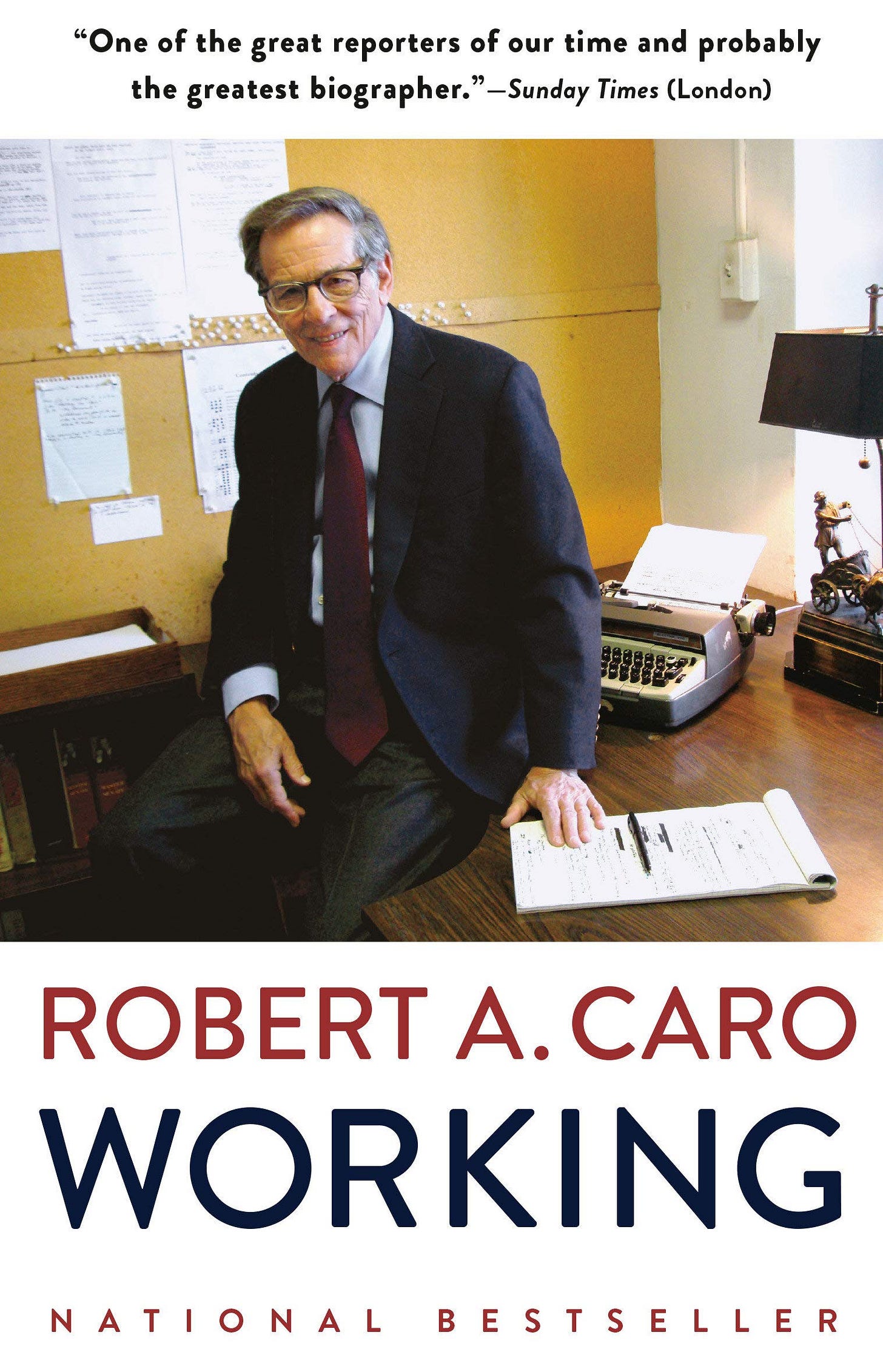Commentary
What I’m stealing
Supplemental Resources
Dog ears, highlights, marginalia
You hear a lot about gunfights in Westerns; you don’t hear so much about hauling up the water after a perineal tear. But both acts are equally part of the story, the history, of the courage it took to settle America’s frontier. (Location 217)
being given an opportunity to explore, to discover, a whole new world when you were already in your forties, as Ina and I were: that wasn’t a sacrifice; being able to do that was a privilege, exciting. The two of us remember those years as a thrilling, wonderful (Location 224)
about my work and how I do it: how I do research in documents; how I report, either on the scene or by interviewing; how I write. (Location 240)
“Turn Every Page” (Location 297)
“Turn every page. Never assume anything. Turn every goddamned page.” (Location 411)
Three of the editors took me to the Four Seasons or some other fancy restaurant, and basically said they could make me a star. Bob Gottlieb at Knopf said, “Well, I don’t go out for lunch, but we can have a sandwich at my desk and talk about your book.” So of course I picked him. (Location 514)
Robert Moses (Location 518)
Although many other plans had been conceived for the waterfront, this immense public work would be built by him—in 1937, almost a quarter of a century after the ferry ride. And (Location 619)
When I did find them—to be more accurate, when we found them: Ina, the only researcher I had on The Power Broker (and the only researcher I have had on all my books), and I each tracked down several of the farmers or their children—I didn’t learn anything new about the Kahn-Moses transaction. (Location 1000)
Note: Rach would make an incredible Ina
ineluctable (Location 1041)
To really show political power, you had to show the effect of power on the powerless, and show it fully enough so the reader could feel it. (Location 1055)
Note: The importance of contrast
Carbon Footprint Conversation between Robert A. Caro and John R. MacArthur, marking the fortieth anniversary of The Power Broker (Location 1089)
Sanctum Sanctorum for Writers (Location 1154)
the most fundamental reason for the feeling of unreality: that I had, for five years, been living in a world utterly unpopulated by anyone else who was doing what I was doing. (Location 1178)
The cafeteria setting could hardly have been more grubby—or more gratifying. The talk was often about problems of research and writing: about the mysteries of our craft, our shared craft. Suddenly, just by being given a desk in the Allen Room, I had been made to feel a part of the community of writers. (Location 1242)
all the years since Alan Hathway had given me that first piece of advice—“Turn every page. Never assume anything. Turn every goddamned page”—I had never forgotten it; it was engraved in my mind. (Location 1294)
They were going to need him. “Gratitude,” I was to write, “is an emotion as ephemeral in Washington as elsewhere but…not merely gratitude but an emotion perhaps somewhat stronger and more enduring—self-interest—dictated that they be on good terms with him.” (Location 1464)
Tricks of the Trade (Location 1951)
silence is the weapon, silence and people’s need to fill it—as long as the person isn’t you, the interviewer. (Location 1952)
have little devices they use to keep themselves from talking, and let silence do its work. (Location 1953)
“What did you see? What did you see?” My interviewees sometimes get quite annoyed with me because I keep asking them “What did you see?” “If I was standing beside you at the time, what would I have seen?” I’ve had people get really angry at me. But if you ask it often enough, sometimes you make them see. (Location 2425)
And then you also ask—another question that over the years has gotten more people angry at me than I could count—“What did you hear?” (Location 2434)
makes the reader feel what you feel about his importance, his fascination as a character, as a human being. (Location 2610)
INTERVIEWER: Do you work from nine to five? CARO: I generally get up around seven or so, and I walk to work through Central Park outlining the first paragraphs that I’m going to write that day. But the thing is, as you get into a chapter, you get wound up. You wake up excited—I don’t mean “thrilled” excited but “I want to get in there,” so I get up earlier and earlier. I work pretty long days. If I’m doing research, I can have lunch with friends, but if I’m writing, I have a sandwich at my desk. The guy I order from at the Cosmic Diner, John, he knows my voice. (Location 2730)
When are you going to deliver? So it’s easy to fool yourself that you’re really working hard when you’re not. And I’m naturally lazy. So what I do is—people laugh at me—I put on a jacket and a tie to come to work, because when I was young, everybody wore jackets and ties to work, and I want to remind myself that I’m going to a job. I have to produce. (Location 2739)


